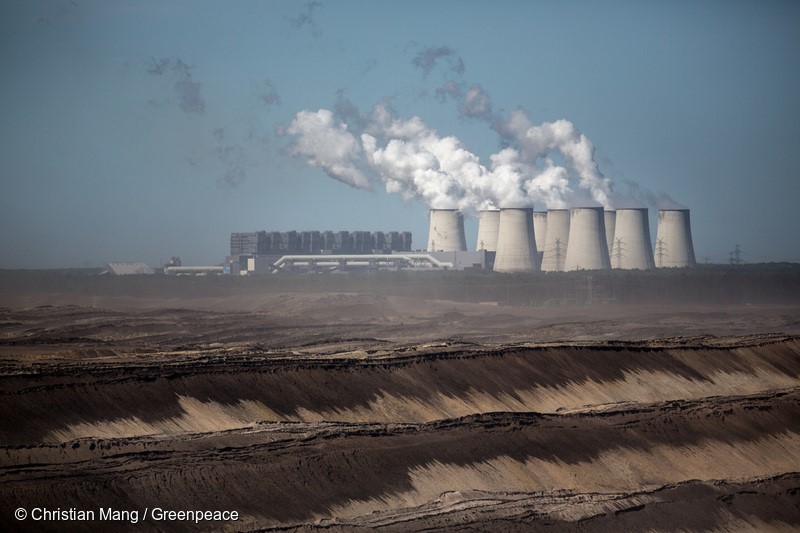Coal plants would be eligible for subsidies until at least 2026
Brussels, 30 November 2016 – A package of policy proposals released today by the European Commission threatens to derail efforts to accelerate the roll-out of renewables, while prolonging subsidies for coal, warned Greenpeace.
Greenpeace EU energy policy adviser Tara Connolly said: “These draft laws are designed for polluting power companies, not for European citizens. Not only is the Commission slamming on the brakes on renewables, it wants to let governments dole out cash to almost all coal power stations in Europe for at least another decade. If this goes ahead, it will seriously impact the EU’s ability to meet its Paris climate commitments and constrain the potential of citizens as renewable energy producers.”
The measures proposed by the Commission include subsidies known as ‘capacity payments’, which are expected to benefit coal, gas and nuclear power under the pretence of ‘keeping the lights on’. In fact, the EU electricity market is already suffering from a surplus in capacity. At least 95 per cent of coal power plants would be eligible to receive capacity payments until 2026, under the Commission’s proposals to only apply a CO2 threshold for new plants. After 2026, all power plants claiming capacity payments would have to be under the threshold of 550g of CO2 per kilowatt/hour.
The Commission also proposes to drop an existing rule that requires the power grid to take available energy from renewables before energy from polluting coal and nuclear plants. This is likely to lead to more instances where renewables are switched off – particularly at times of oversupply – because it is easier to turn off wind or solar power than coal and nuclear plants.
These measures are expected to block new investments in renewables.
At the same time, the Commission proposal promotes the role of citizens and cooperatives to produce, consume, store and sell their own renewable energy. However, it proposes to limit the size of renewables cooperatives by capping projects at 18 megawatts per year.
The full package of Commission policy proposals aims to help the EU meet its 2030 targets to cut carbon emissions and boost renewable energy and energy efficiency. Yet, it is unlikely to fulfil the EU’s contribution to the pledge to limit global temperature increase to 1.5°C, as agreed in last year’s Paris climate deal.
* Analysis of the European Commission’s proposals is available here: bit.ly/WinterPackage16 *
Contacts:
Greenpeace EU press desk: +32 (0)2 274 1911, [email protected]
Tara Connolly: +32 (0)477 790416, [email protected]
This press comment is also available on: www.greenpeace.eu
For breaking news and comment on EU affairs: www.twitter.com/GreenpeaceEU
Greenpeace is an independent global campaigning organisation that acts to change attitudes and behaviour, to protect and conserve the environment and to promote peace. Greenpeace does not accept donations from governments, the EU, businesses or political parties.

